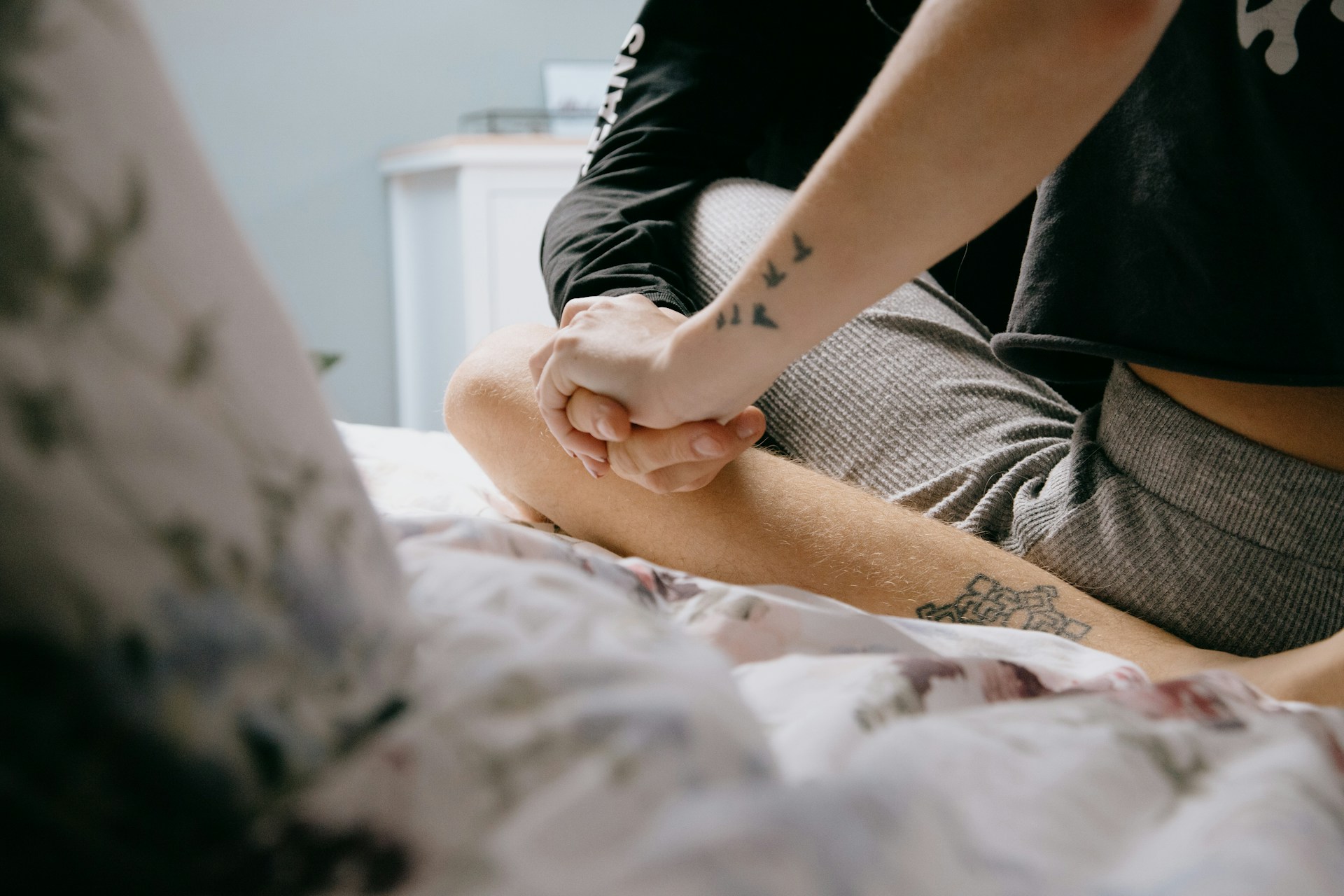In Denver, a city celebrated for its inclusive culture, lesbian couples–seeking to fortify their relationship–have access to expert, compassionate counseling. Here, we explore the unique challenges lesbian couples may encounter, outline the qualifications of specialized LGBTQIA+ focused counselors, and share personal testimonials that highlight the profound impact of such counseling.
Unique Challenges Faced by Lesbian Couples
Lesbian relationships can face a variety of specific challenges which may include:
- People Pleasing & Anxiety: It is very common to have one partner in the relationship working hard to keep the other comfortable and stable, while the other feels fearfully detached and comes across as either critical or powerless. Such a dynamic is common. Small adjustments can take a lesbian couple a long way.
- Boundaries & Communication: Many lesbian couples have repeating arguments that stem from challenges (emotional, relational, and past traumas) and pepper their relationships with hopelessness and confusion.
- Internalized Homophobia: Struggles with internalized societal biases can negatively influence self-esteem and interpersonal dynamics.
- Coming Out: The journey of coming out to family, friends, and colleagues can often bring anxiety and may impact the relationship dynamics.
- Family Acceptance: Challenges in gaining acceptance from family members can create significant emotional turmoil and conflict within the relationship.
Addressing these issues within a supportive counseling environment can lead to transformative outcomes for couples grappling with these challenges. Learn more about Attachment in Polyamorous Relationships!
Addressing These Challenges Through Counseling
Expert counselors in Denver are uniquely positioned to support lesbian couples as they navigate the intricate challenges that may affect their relationships. These professionals create a nurturing environment where couples can openly address internal conflicts, societal pressures, and family dynamics. Here’s how counseling can help address three major areas: internalized homophobia, the coming out process, and family acceptance. Exploring Open Relationships vs. Monogamy!
Understanding People Pleasing Patterns and Anxiety
Life in the closet is bad for us in more ways than one. As we live hiding our true selves it can either feel like our hiding is what keeps others around us comfortable, or as though our hiding is what keeps us detached from others and anxious. Either way, as we live closeted–from our most intimate relationships–we develop a relational software that stems from childhood closeted experiences and affects our romantic, professional, and platonic relationships.
How Counseling Helps:
- Learning about Enmeshment & Detachment: identifying how enmeshment (people pleasing) and/or detachment (feeling isolated and anxious) are inherent effects of living in the closet can help couples talk openly about what has hurt and what needs to change
- Learn About Your Relational Dynamic: Assessing how these patterns affect romantic relationships and have defined relational and/or emotional intimacy.
- Setting the Tone You Crave: Redefining ways of connecting as a means of learning to trust a new pattern and playing a new, healthy role in relationships
- Loving Yourself To Love Another: Connecting back to authenticity and independence so that your relationships doesn’t feel like work, but liberation
Practicing Boundaries and Healthy Communication
Lesbians often joke about ‘U-hauling it.’ And sometimes there is a lot of momentum in relationships, but not enough boundaries to support the movement. In the excitement and surge of getting to know one another, it is easy to overlook setting a solid platform upon which the relationship can thrive. Boundaries and efficient communication are two tactics that can propel an excited, lesbian couple from stage one into a long and fulfilling future.
How Counseling Helps:
- Creating Sophisticated Boundaries: Boundaries are often thought to be a wall that protects us. As such, they also become barriers to healthy emotional intimacy. Utilizing a sophisticated boundary system, we see that they actually help us bond
- Objectifying Behaviors: A mature boundary system will allow us to assess our own behaviors so that we can feel proud of how we show up in relationships. It will also help you empathize with your partner’s emotional experience. Again, a strong boundary system will strengthen your ability to understand one another and keep the relationship organized
- Empathy Feeds Healthy Communication: Once we have a healthy boundary system, communicating efficiently and healthily is inevitable. With the distance that a health boundary creates, our partner’s emotions no longer feel like personal attacks. Communication then is another tool that allows you to learn about your partner as opposed to needing to protect yourself from her.

Exploring Feelings of Internalized Homophobia
Internalized homophobia is a common challenge many lesbian individuals face, stemming from societal messages that may have been unconsciously accepted over time. This can manifest in feelings of shame, low self-esteem, or conflict about one’s own sexual orientation.
How Counseling Helps:
- Deconstruction of Negative Beliefs: Counselors assist individuals in unpacking and challenging these internalized beliefs, helping to dismantle the negative self-concepts they have developed.
- Promotion of Self-Acceptance: Therapy sessions focus on building self-acceptance and pride in one’s identity, which are crucial for personal happiness and healthy relationships.
- Improvement of Relationship Dynamics: As individuals feel more comfortable with their identities, their relationship dynamics can improve, fostering closer and more authentic connections with their partners.
Strategizing the Coming Out Process
Coming out to family, friends, and colleagues can be a significant source of anxiety and stress for lesbian individuals and couples. Each coming out experience is unique, and the process can significantly impact both personal well-being and relationship health.
How Counseling Helps:
- Personalized Coming Out Strategies: Counselors work with individuals and couples to develop tailored strategies for coming out that consider personal circumstances and the potential reactions of others.
- Support Systems: Therapy provides a supportive backdrop where individuals can discuss fears and concerns about coming out, ensuring they do not face this challenging process alone.
- Managing Reactions: Counselors equip clients with tools to handle various reactions, whether supportive or adverse, helping to maintain their emotional equilibrium throughout the process.
Facilitating Family Acceptance Dialogues
Family acceptance is crucial for the emotional well-being of lesbian couples. However, not all families are immediately accepting, and navigating this reality can be emotionally draining.
How Counseling Helps:
- Communication Techniques: Counselors teach effective communication skills that help couples articulate their needs and boundaries clearly to their families, which can lead to better understanding and acceptance.
- Mediation and Facilitation: In some cases, counselors may act as mediators in family dialogues, helping to facilitate discussions that might otherwise be too emotionally charged to handle alone.
Coping Mechanisms: For ongoing non-acceptance, counselors help couples develop coping mechanisms to protect their relationship and well-being, allowing them to maintain connections with family where possible, without compromising their mental health.
Creating a Safe and Affirmative Counseling Environment
It is crucial for therapy to occur in a space where lesbian couples can freely explore issues related to sexuality, gender identity, and non-traditional relationship dynamics without judgment:
- Exploration of Sexuality and Gender Identity: Counselors provide a secure environment to discuss these topics openly, which is vital for personal and relationship growth.
- Non-Traditional Relationship Dynamics: Counselors support couples in navigating and embracing various relationship structures, enhancing mutual satisfaction and understanding.

The Impact of Supportive Counseling
The benefits of a supportive counseling environment extend beyond the therapy sessions:
Improved Communication
One of the most immediate impacts of a supportive counseling environment is the enhancement of communication skills within a relationship. Effective communication is the cornerstone of any healthy relationship, and it becomes even more crucial when navigating the complexities associated with lesbian relationships, such as societal pressures and internal conflicts.
Benefits of Improved Communication:
- Clarity and Understanding: Couples learn how to express their thoughts and feelings clearly and listen to each other without judgment. This understanding helps prevent misunderstandings and builds a foundation of trust.
- Conflict Resolution: With better communication, couples can more effectively resolve conflicts. They learn to approach disagreements with a problem-solving attitude rather than a confrontational one.
- Expressing Needs and Desires: A supportive environment encourages individuals to voice their needs and desires openly, ensuring that both partners understand what is important for maintaining a healthy relationship.
Increased Cohesion and Partnership
A supportive counseling environment also cultivates a deeper sense of partnership and cohesion. When couples feel understood and supported by their therapist, they are more likely to extend that understanding and support to each other.
Strengthening Relationship Bonds:
- Shared Goals and Values: Counseling helps partners align their goals and values, fostering a shared vision for their relationship’s future.
- Mutual Support: As couples work through their issues in a safe space, they learn how to offer and receive support, strengthening their bond.
- Facing Challenges Together: A strengthened partnership equips couples to handle external pressures more effectively, whether from family, society, or professional environments.
Personal Empowerment
Finally, the benefits of a supportive counseling environment contribute significantly to personal empowerment. Individuals are encouraged to explore and affirm their identities, which is particularly impactful in a society where LGBTQIA+ identities may still face stigma and discrimination.
Elements of Personal Empowerment:
- Self-Acceptance: Therapy provides the tools for individuals to accept themselves fully, which is crucial for mental and emotional health.
- Confidence in Identity: As individuals become more confident in their identities, they are better able to live authentically and maintain open, honest relationships.
- Empowered Decision-Making: With a stronger sense of self, individuals can make decisions that truly reflect their needs and values, positively affecting all areas of their lives.
Expertise of Denver’s LGBTQIA+ Counselors
The effectiveness of relationship counseling is significantly enhanced by a counselor’s expertise, particularly their understanding of lesbian relationships. Counselors in Denver bring a robust skill set:
- Part of the Querr & Trans Communities
- Specialized Training: Many hold advanced degrees with additional certifications in LGBTQIA+ mental health, ensuring they are equipped with the latest therapeutic methodologies and insights.
- Extensive Experience: Effective counselors often bring years of experience working directly with LGBTQIA+ individuals, deepening their understanding of the unique pressures and challenges faced by these communities.
- Credentials: It’s essential to verify that counselors are licensed and accredited by recognized mental health organizations.
Testimonials from the Community
- Megan Thoprakane: “The team at iAmClinic has been huge in getting my relationship back on track. I can’t thank them enough for helping me understand all the unconscious ways I had been sabotaging my relationships.”
- Emily Dykes: “I’ve been coming to the iAmClinic for years for individual and couples therapy. I’ve always had an incredible experience but today was particularly special. I attended a breathwork session and it was powerful!! It’s beautifully led, and I felt well supported the whole time but I was also given the space I needed to follow my own body and feelings in my breath. This felt safe, meaningful, and I highly recommend to all!!”
Discover the Support You Need at iAmClinic
If you’re looking for relationship counseling in Denver, consider the iAmClinic. With specialized expertise in LGBTQIA+ issues, our counselors are committed to providing a safe, understanding, and affirming environment to help you and your partner navigate the complexities of your relationship. Whether you’re dealing with internal challenges, societal pressures, or family dynamics, iAmClinic is here to support your journey towards a stronger bond and a healthier relationship. Contact us today to see how we can support you and your relationship goals.


